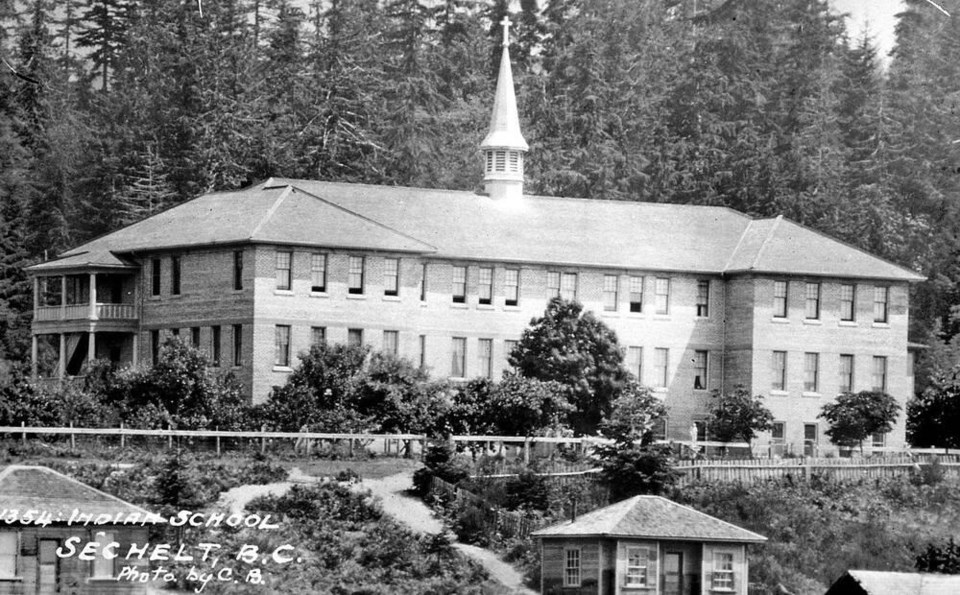I have spent the past few weeks in Sechelt working with shíshálh Nation. I was asked to assist the Nation with communications as it revealed the recent results of archaeological research on the former grounds of St. Augustine’s residential school.
I learned the results when chief and council learned the results. It was a privilege and honour to have shíshálh Nation trust me to support them in this important work. I attended each community meeting as members learned the news and meetings with neighbouring Nations whose children attended the institution.
Over the years, I’ve sat and listened to many residential school survivors share their stories and talk about how those childhood experiences affected them throughout their lives.
This week, I have done the same, but it was different. I sat in many meetings where chief and council and senior staff worked to determine how and when to share the news. There is no good way to talk about the murder of young children.
shíshálh Nation had two clear goals in its messaging. The first was that they didn’t want to focus on numbers. “These were children,” they said. “One child is too many.”
St. Augustine’s location is not in the centre of town, and there has been a lot of development in the area. The researchers said the 40 children’s unmarked graves identified are not the total. Not all grounds were scanned, the ground-penetrating radar needs to touch the ground, and areas of construction would have disturbed the unmarked graves.
shíshálh Nation’s primary message is that the words of survivors are the most important. They already knew the truth, and they have for many years.
The survivors guided the areas searched, and their words were validated by the results of the scanning.
The experiences of survivors have always been believed by shíshálh Nation, and I hope that as you read this, you, too, can honour the words and experiences of survivors.
As news of these findings, and findings of other such investigations across sa国际传媒, come to light, be mindful of questions you ask. Even a simple question that seems innocent and respectful can be triggering to Elders and other community members. Remember, this is their story to share, not our story to ask.
In this column, I wanted to share the perspective of someone who sat in these internal meetings. I have permission from Chief Lenora Joe to do so.
As the researchers shared the information, I learned the children’s graves were shallow, and the children were buried in the fetal position. The visual stuck in my mind and eventually I asked: “Why the fetal position?”
The response was that it was less work digging smaller holes. There are many survivor accounts across sa国际传媒 of children being forced to dig graves for their peers.
It is so disheartening to know this is a part of our history. Imagine how digging a grave for a classmate could affect you for life.
Children from 51 Nations across sa国际传媒 and even Saskatchewan attended St. Augustine’s. Many of these communities had residential school institutions near them.
Children who fought against the system, ran away from the school and refused to conform were often sent farther away from home so if they ran, they would not be able to make it home.
Those children were brave. They were leaders.
I ask you to please be respectful. I have learned so much more about these tragedies, and it reminded me that we don’t know everything. We can’t assume that we are aware of everything, and often the most troubling stories are the ones that have never been shared.
There are survivors who have never shared their stories, not even with their spouses or families. It is too hard to speak about.
If you want to show support to shíshálh Nation, chief and council are requesting that you wear an orange shirt, fly a flag at half-mast, and cherish time with your families and children. You can also send a message to [email protected].
>>> To comment on this article, write a letter to the editor: [email protected]



